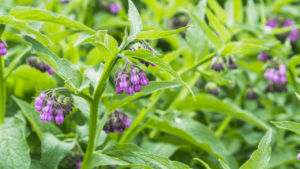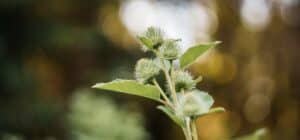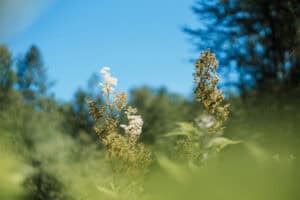The urinary system is one of the main eliminatory pathways of the body. When it becomes blocked, detoxification is inhibited, and infections and kidney stones can occur.
The first step you need to take before taking herbal medicine is identifying the underlying tissue state of your unique condition. By doing so, you can select herbs with precision to alleviate painful symptoms while resolving the issue at its core.
In today’s blog post, you’ll learn:
- The urinary system’s primary functions
- How the 6 tissue states express themselves in the urinary system
- Specific herbs that balance each urinary system tissue state
- What kidney stones and UTIs are, and what actions and herbs you can use for them
- Nutrition and lifestyle recommendations for a healthy urinary system
Table of Contents
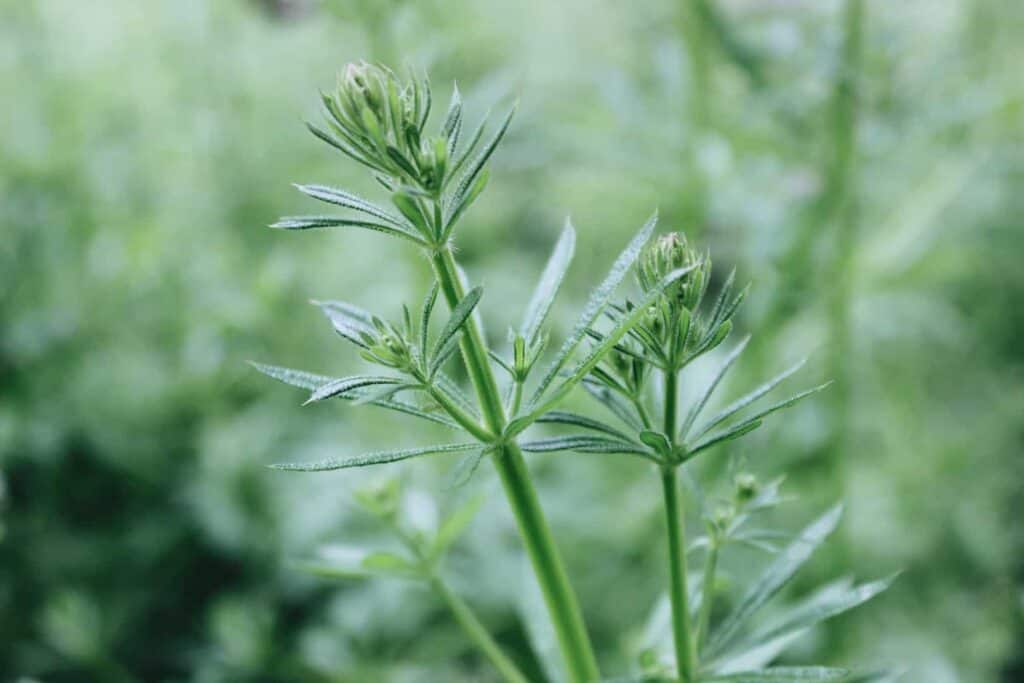
What does the urinary system really do, other than the obvious?
The urinary system includes the kidneys, ureter, bladder, and urethra. Although your first association may be its production of urine, this function is merely a part of its highly sophisticated process.
Your kidneys and urinary tract are responsible for maintaining the balance of minerals and liquid to solid elements in the body. They also filter and cleanse the bloodstream of impurities, regulate the acidity and alkalinity of the system, and equalize blood pressure for a healthy cardiovascular system. In these ways, it is an essential aspect of your body’s detoxification processes, putting it on par with the skin, bowels, lungs, and liver.
When kidney or urinary tract infections occur, it means that one of your body’s primary elimination channels is blocked or inhibited. This can lead to a backup of toxins and a spike in inflammation and pain.
Kidney stones and urinary tract infections (UTIs) are two of the most common urinary system conditions people face. Through understanding the underlying tissue states behind each case, you can select herbal remedies that reduce pain while restoring the urinary system to health.
Urinary System Tissue States
Urinary tract infections occur when bacteria enter the urethra and infect the urinary tract. Common culprits include sex and conditions that block the urinary tract, like kidney stones. The infection can affect several parts of the urinary system. Although the most common one is cystitis, a bladder infection, it can also develop into something more serious like pyelonephritis, a kidney infection. Common urinary tract infection symptoms include frequent urination, pain when urinating, and pain in the abdomen or pelvic area.
The conventional approach to UTI treatment is antibiotics. Although there are times when an infection is severe enough to warrant this approach, antibiotics are often overprescribed and destroy the healthy flora of the urinary tract, leaving you even more susceptible to future infections. If you experience frequent UTIs, it is important to ascertain if there are any contributing factors, like diet, sexual hygiene, or ill-fitting clothing. After considering and eliminating said factors, you can take the next step by taking herbs to restore your urinary system back to health.
Although the symptoms of UTIs or kidney stones may be similar, their underlying energetics vary from person to person. For this reason, it’s paramount that you ascertain the tissue state imbalance before determining which herbs you would like to use when helping someone.
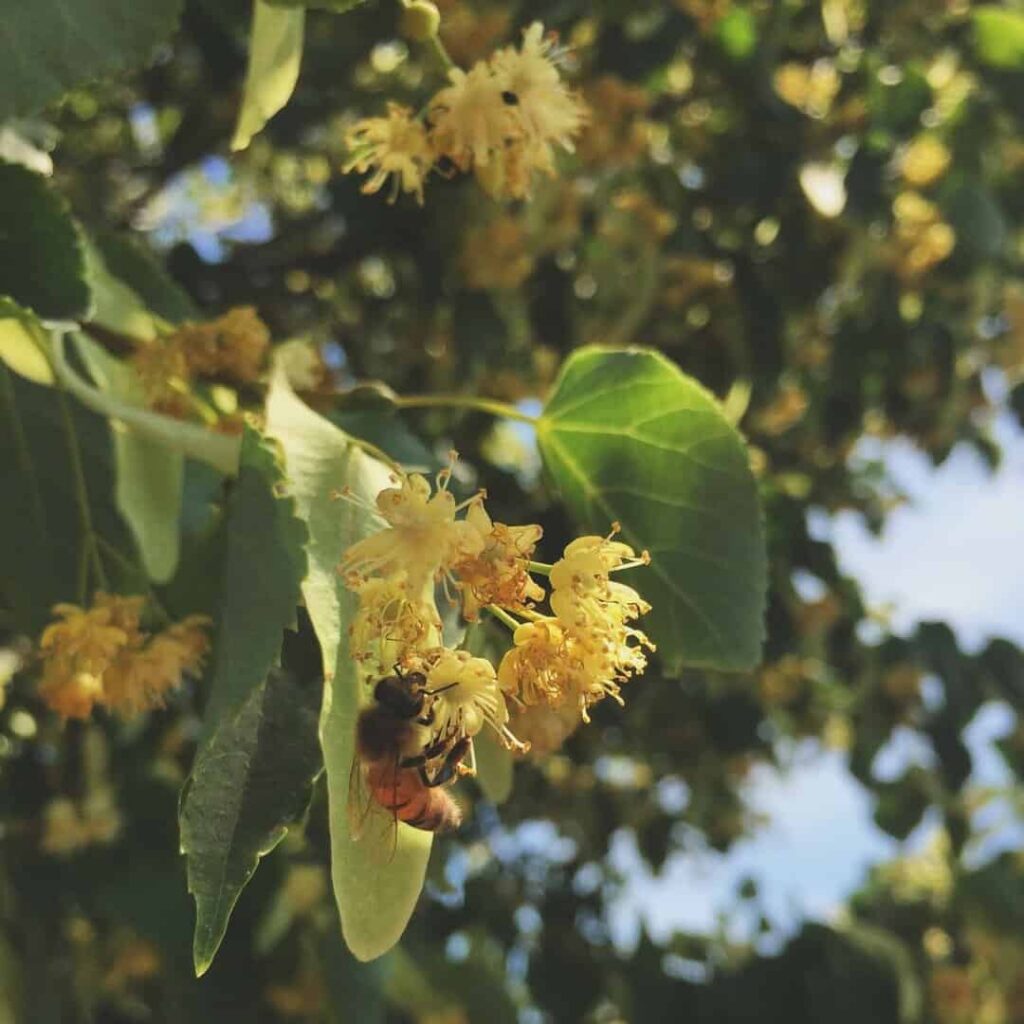
Heat/Excitation
Heat/excitation occurs in the urinary system when excess nitrogenous waste products from protein metabolism heightens acidity in the tissues. In a vital response, your body triggers neural firings, elevates heart rate, and increases circulation to optimize detoxification and filtration.
This hyperactivity generates heat in the kidneys, mucosal membranes, ureter, and urethra. Over time, this leads to pain, fever, infection, and blood in the urine. In this case, urine is often dark, malodorous, and hot upon elimination. Other signs and symptoms of heat in the urinary system include hot skin conditions, kidney stones or gravel, pain in the bladder, and tension.
The remedies for heat/excitation urinary system infections are cooling and demulcent, thereby soothing irritation from hyperactivity. Some top herbs include Linden (Tilia europaea), Marshmallow (Althea officinalis), Hibiscus (Hibiscus spp.), and Couch grass (Agropyron repens). While each possess unique properties that make them different from each other, they are all cooling herbs that lessen irritation and possess varying levels of mucilage that grant them their demulcent qualities.
Cold/Depression
With cold/depression, urine retention occurs in the bladder, which predisposes you to infection. Retention is likely due to weakness of the tissues and nerve impulses needed to trigger urination. Because the urine sits too long, it becomes heavy, mucoid, and difficult to pass. When kidneys are functionally depressed, they cannot filter blood well, which leads to systemic toxicity. Common expressions of cold/depression include systemic coldness, edema, a languid pulse, and poor circulation.
Warming and stimulating herbs high in volatile oils are used to disperse a stagnant environment and increase activity in the organs and tissues. Main remedies include Pipsissewa (Chimaphila umbellata), Buchu (Barosma crenata), Uva-Ursi (Arctostaphylos uva-ursi), Juniper (Juniperus communis), Wild Carrot aka Queen Anne’s Lace (Daucus carota), Goldenrod (Solidago canadensis), and Gravel root (Eupatorium purpureum).
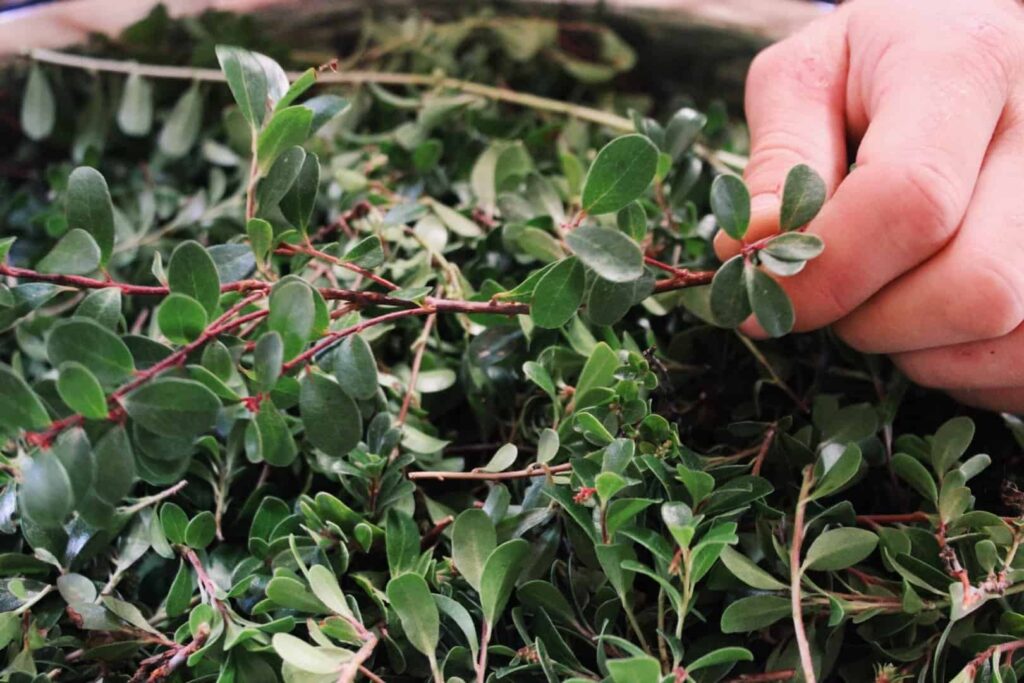
Dry/Atrophy
When there is dry/atrophy in the urinary system, the kidneys are weakened and struggle to filter and clean the blood efficiently. This increases the potential for “bad blood” and stone formation due to precipitation from insufficient fluids and hydration. The dry/atrophy tissue state is often closely linked to nervous exhaustion as the nervous system does not receive adequate fats and oils to function optimally. Interestingly enough, the old doctors found that the formation of calcium oxalate stones (the most common of the three types of stones) was often due to neurasthenia, or nervous system exhaustion. With dry/atrophy, the bladder walls weaken and are prone to prolapse. There are often other signs of nervousness and tension, like a dry tongue with a weak pulse.
Common remedies are mucilaginous demulcents and mineral-rich plants that nourish the nervous system. These include Marshmallow root (Althea officinalis), Couchgrass (Elymus repens), Plantain (Plantago officinale), Cornsilk (Zea mays), Cleavers (Galium aparine), Horsetail (Equisetum arvense), and Burdock (Arctium lappa).
Damp/Stagnation
Damp/stagnation typically develops in the urinary system when there is systemic toxicity in the liver, digestive system, heart, lungs, and lymphatic system. Because these systems are not working at capacity, the kidneys need to work extra hard to eliminate toxins from the body. This slows down kidney functioning since they need to process toxin-rich blood.
There are often thickened mucous secretions in the bladder, swelling of the tissues, and an environment prone to infection. Symptoms include mucous in the urine, a tongue with a thick wet coat, and skin issues related to systemic toxicity.
The remedies used for this tissue state are pungent and bitter herbs that circulate the congested fluids and purge them from the body. These include Dandelion leaf (Taraxacum officinale), Pipsissewa (Chimaphila umbellata), Goldenseal (Hydrastis canadensis), and Juniper (Juniperus communis).
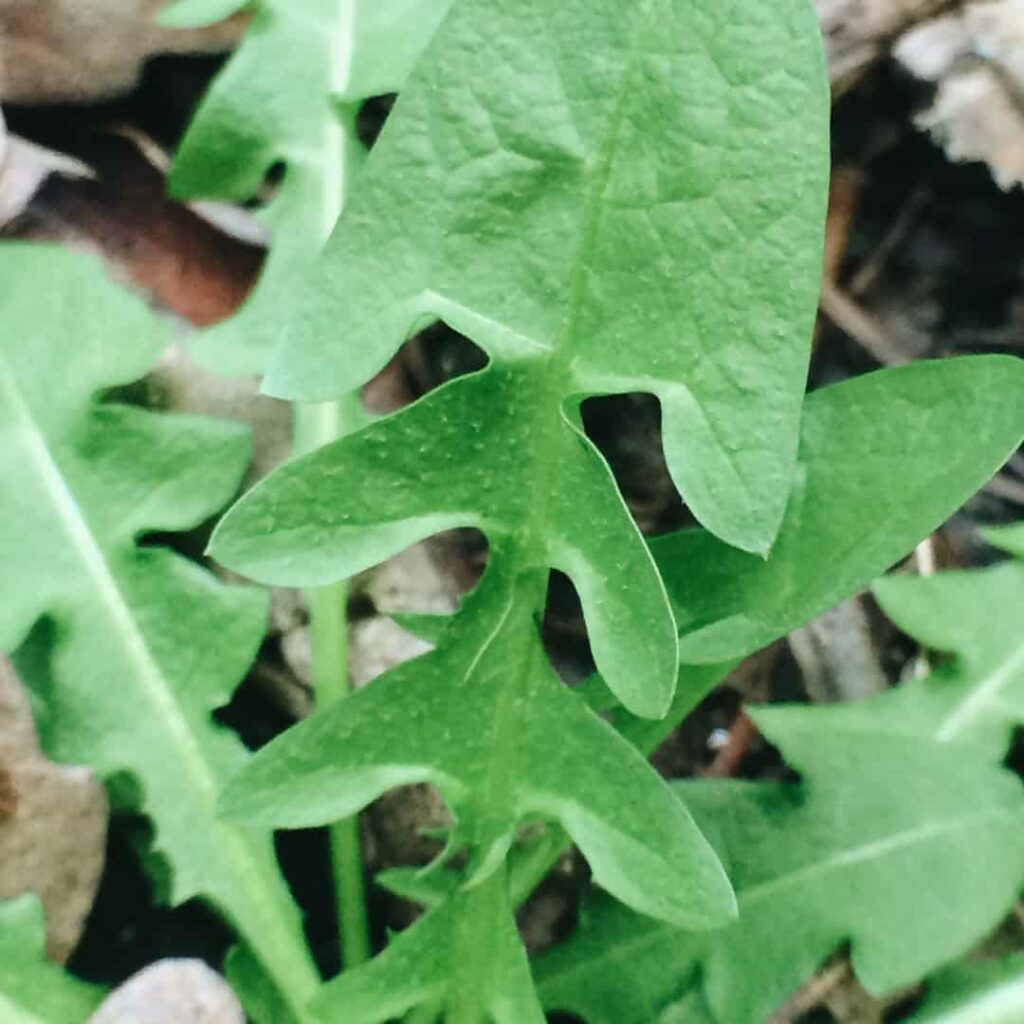
Damp/Relaxation
With damp/relaxation, the kidney tissues are lax and the renal tubules are less effective at reabsorbing plasma and fluids and reintroducing them to the bloodstream. This leads to an accumulation of fluids passing through the urinary system, which can cause tissue degradation and mental exhaustion as your body eliminates minerals excessively. As potassium storage is depleted, a sodium imbalance occurs, leading to high blood pressure and edema. This tissue state can lead to a weak atonic bladder and urinary leakage or dribbling. There may also be mucous secretions in the urine from excess moisture. The tongue will be moist and pulse weak and lax, skin pale.
The best remedies for damp/relaxation are mineral-rich herbs and astringents, like Horsetail (Equisetum arvense), Sumach (Rhus typhina or Rhus aromatica), Water Lilly (Nymphaea odorata– White Pond Lilly, or Nymphaea luteum– Yellow Pond Lilly), Sage (Salvia officinalis), Yarrow (Achillea millefolium), Agrimony (Agrimonia eupatoria), Cranesbill (Geranium maculatum), and Uva-Ursi (Arcotstaphylos uva-ursi).
Wind/Tension
Where there is wind/tension, the arteries that feed the kidneys are constricted, resulting in inefficient blood filtration and inhibited blood flow into the kidneys. Additionally, the smooth muscles around the tubules cramp and spasm in the presence of a stone, a vital response to squeezing out the precipitate. There is often straining when urinating with an inability to release the fluids. Symptoms will often come and go, as is standard to vata/wind type conditions, and feel better with warmth and pressure. The pulse will typically feel wiry and resistant.
The best herbal remedies for this state are antispasmodic nervines like Kava-Kava (Piper methysticum), Blue Vervain (Verbena hastata), Crampbark (Viburnum opulus), Agrimony (Agrimonia eupatoria), and Wild Yam (Dioscorea villosa).
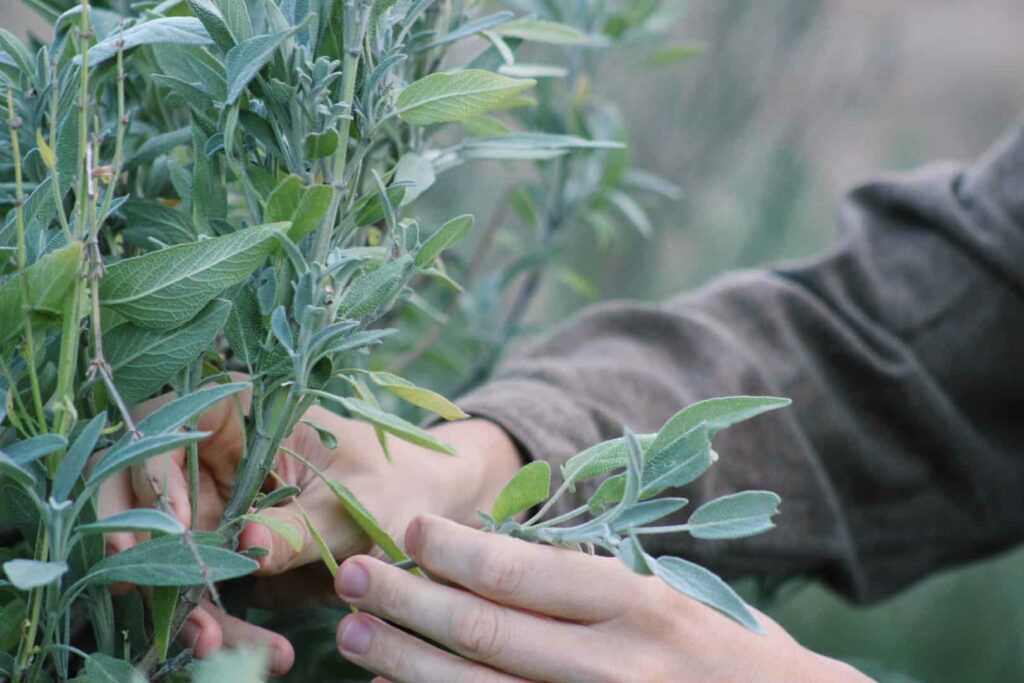
UTI Herbal Actions and Specific Indications
The best all-around herb to use for UTIs is Uva-Ursi (Arctostaphylos uva-ursi). This plant contains a unique mechanism that occurs in the kidney and affects the entire urinary system. Upon ingestion, a constituent called arbutin passes through the kidneys and converts into a substance called hydroquinone, which is a broad-spectrum antiseptic compound with specificity for the urinary tract.
Uva-Ursi (Arctostaphylos uva-ursi) cools heat and inflammation commonly associated with UTIs and kidney stones. With its astringent effects, it tones an overly lax bladder and increases urination to prevent infection. Two other plants in the same family include Manzanita (Arctostaphylos manzanita) and Madrone (Arbutus menziesii).
These two herbs contain arbutin as well and provide similar benefits. The main difference between these three herbs is their level of strength. While Uva-Ursi (Arctostaphylos uva-ursi) is the mildest of the three, Manzanita (Arctostaphylos manzanita) is moderately strong and Madrone (Arbutus menziesii) is the strongest. Although there are instances where you might want to immediately go for the strongest medicine, this can also lead to irritation. In general, it is best to use the mildest option and move up from there as needed. For all three herbs, it is best to use them for short periods of time instead of prolonged periods. Uva-Ursi (Arctostaphylos uva-ursi) is fairly easy to find in Northern America and is a popular and reliable remedy for UTIs.
Some other herbs indicated for UTIs include Oregon Grape root (Mahonia aquifolium), Juniper (Juniperus communis), Yarrow (Achillea millefolium), and Pipsissewa (Chimaphila umbellata). These all work to fight infection in different ways. While Oregon Grape (Mahonia aquifolium) contains berberine, Juniper (Juniperus communis) and Yarrow (Achillea millefolium) contain antiseptic essential oils that target the kidneys and urinary tract. It is important to be mindful of your intake of Juniper though, since it is a renal stimulant and can be too stimulating, especially in the case of acute kidney stones or heat/excitation patterns in the urinary tract. Pipsissewa (Chimaphila umbellata) is a lymphagogue remedy that clears congestion in the pelvic region, making it an excellent herb for UTIs. There are many different herbs that you can use for UTIs. What matters most is identifying the one that fits your unique circumstance best.
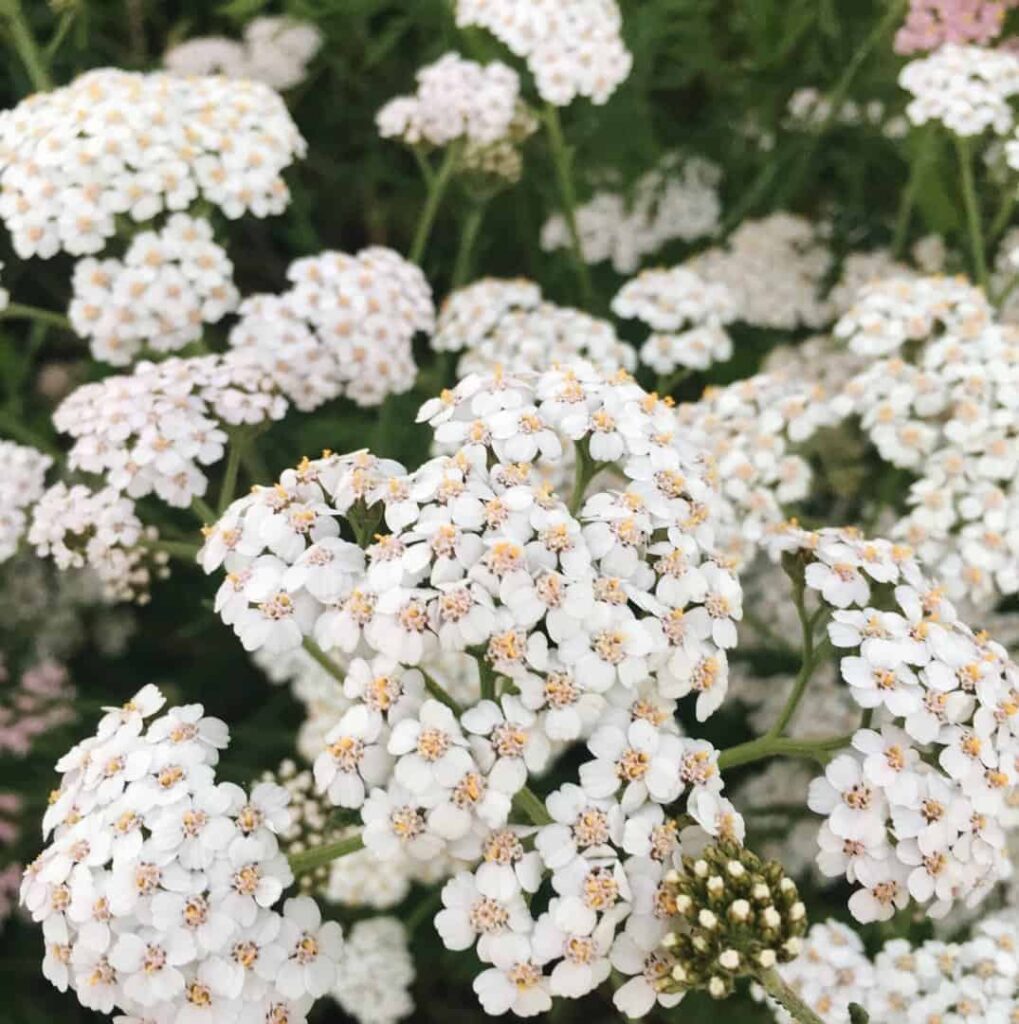
Kidney Stone Herbal Actions and Specific Indications
Kidney stones develop when your urine contains more crystal-forming substances, like oxalate, uric acid, and calcium, than the fluid in your urine can dilute. Additionally, your urine may lack the substances needed to prevent crystals from sticking together, creating the perfect environment for kidney stones to form.
Once the stone is formed, it may stay in the kidney or travel down the urinary tract into the ureter. When they pass, they are often painful. If they become lodged, they can cause a back-up of urine in the kidneys, ureter, bladder, and urethra. There are four main types of stones: Calcium oxalate, uric acid, struvite, and cystine. Conventional medicine does not provide much insight towards what causes them or how to treat them.
Kidney stones are difficult to treat and are excruciatingly painful to pass. They are stubborn and require time to fully resolve. I have had many clients with kidney stones, and while herbs provided relief, they were not enough to fully dissolve the stones or pass them. Many required lithotripsy, a procedure that sends focused ultrasonic energy or shock waves directly to the stone, while others required surgical removal. If kidney stones are left unaddressed, they can block the urinary pathway and cause serious health complications. Therefore, it’s the responsibility of each individual to determine what route they want to take to treat them. In some cases, further medical attention is necessary. However, there are many cases where a holistic herbal protocol is enough to move the stones and relieve pain.
Antispasmodics
Kidney stones cause severe cramping in the lower abdominal region as the smooth muscles around the ureter and bladder spasm in an attempt to push the stone out. However, kidney stones are not smooth pebbles- they are like three-dimensional shards of glass. This means that each time your tissues clamp down, they press against these spiked formations, causing tremendous pain.
Antispasmodic herbs help reduce these spasms and general tension, thereby providing pain relief. A specific remedy for kidney stones is Kava Kava (Piper methysticum), which has an affinity for the bladder and urinary tract. Aside from relaxing cramps and spasms, Kava (Piper methysticum) lowers stress, anxiety, and tension that results from being in such pain, thereby providing emotional support throughout the process. Cramp bark (Viburnum opulus) is another good option, as are Wild Yam (Dioscorea villosa) and Lobelia (Lobelia inflata), which are excellent smooth muscle antispasmodics.
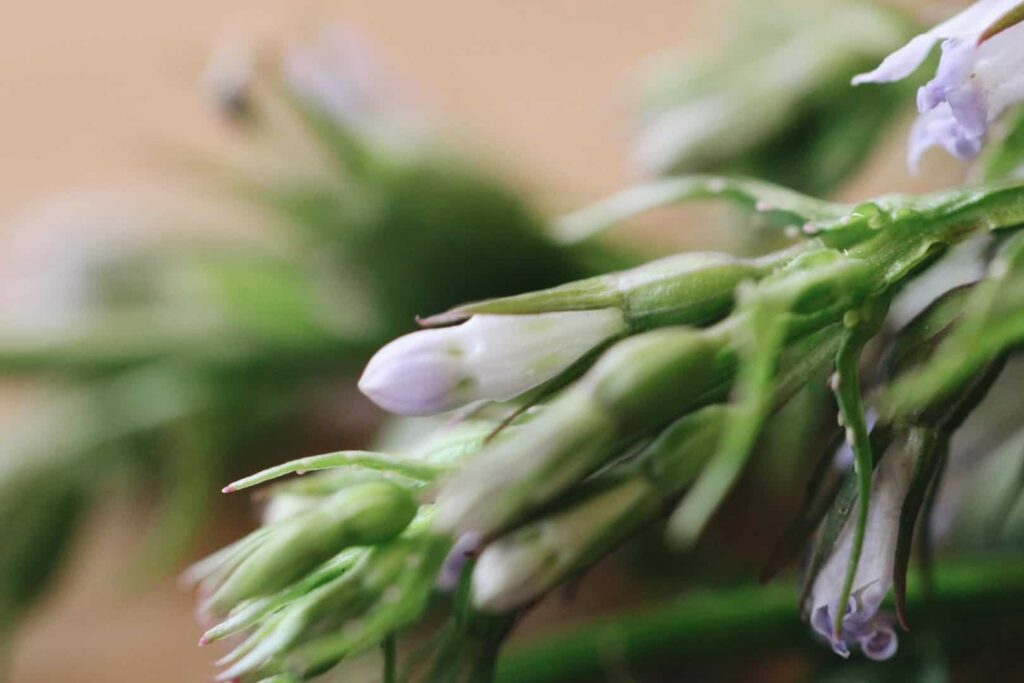
Vulneraries and Styptics
Since kidney stones are not flat, but rather like sharp geodes, passing them is incredibly painful and can cause abrasions and bleeding. Because of this, it’s important to use herbs that are wound healing and styptic to stop bleeding. The number one herb to use here is Yarrow (Achillea millefolium), which staunches bleeding, modulates inflammation, and possesses antiseptic essential oils that pass through the urinary tract. Overall, it possesses tremendous wound-healing effects.
You may be able to see bleeding if there is a pink coloration to the urine. If the bleeding is heavy, use Shepherd’s Purse (Capsella bursa- pastoris) instead of Yarrow (Achillea millefolium) since this plant is a strong styptic with an affinity for the urinary tract. However, both work to stop bleeding.
Demulcents
As kidney stones move through the urinary tract, they scrape and poke your sensitive tissues. Demulcents, like Marshmallow (Althea officinalis) or Slippery Elm (Ulmus fulva), coat the urinary tract lining with soothing mucilage that reduces any generated heat, irritation, and inflammation. The additional lubrication helps move stones along a bit easier and can be used to prevent abrasion and bleeding.
These herbs are best prepared as a cool infusion since this temperature of water is most effective at drawing out the mucilage of the plant. Additionally, you are best off drinking these herbs as this medium ensures that the demulcent properties reach, cool, and coat your urinary tract.
Antilithics
This action includes remedies that have been used in the treatment of kidney stones and their accompanying symptoms. There are a few different herbs touted for their ability to break stones. Although I have not personally achieved great results with them, this might have to do with the dosage or remedies I have used. The size of the stones may play a role as larger ones would be harder to break down than smaller ones.
The main remedies used here are Chanca Piedra (Phyllanthus niruri), which is from South America and literally translates to stone breaker, Gravel Root (Eupatorium purpureum), and Hydrangea (Hydrangea arborescens). Gravel Root (Eupatorium purpureum) is mainly used in Western herbalism, dispels dampness, and is a reliable diuretic that takes solids that have precipitated out of fluid and re-dissolves them back into that fluid, thereby making it helpful for kidney stones and arthritic deposits in the joints.
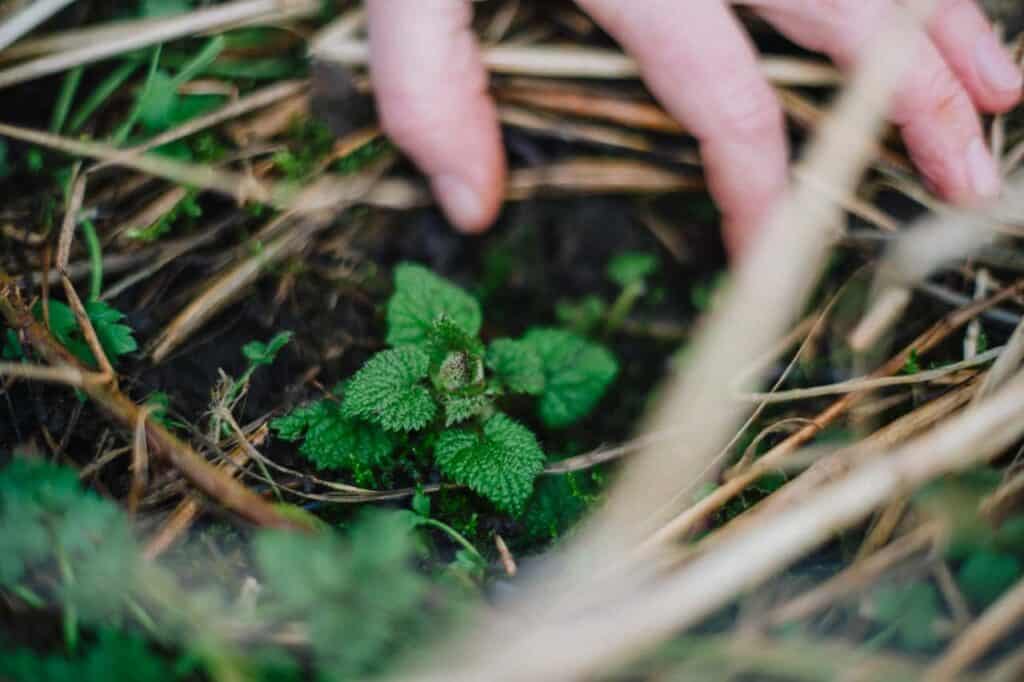
Diuretics
Diuretics increase the output of urine. Cleavers (Galium aparine) is one of my favorites since it soothes heat and irritation while supporting healthy lymphatic movement. Nettle (Urtica dioica), Dandelion leaf (Taraxacum officinale), and Corn silk (Zea mays) are three other reliable diuretics. Couch Grass (Elymus repens), is another nice option and is more demulcent than the others, making it an excellent remedy for irritated and inflamed tissues.
The Best of Both Worlds
If it is possible, collect a kidney stone sample and bring it to a lab. By doing so, you can have the sample analyzed for its mineral composition and receive greater insight into what might be causing you to have kidney stones. From there, you can make dietary and lifestyle changes to prevent them from forming again- which is always the best approach to health.
When working with herbal medicine, it’s important to remain patient and give the process time. Kidney stones are not easy to treat, and their healing process can be frustrating for everyone, especially for the person suffering from them. With that said, kidney stones abrase the urinary tract as they pass and can lead to blockages. If left unattended, serious infection can occur.
Kidney stones are serious and if you do not see significant improvements with your approach, you may need to consult a medical practitioner to discuss other options. Although holistic practitioners often turn away from conventional medicine, it provides miraculous and life-saving procedures that can save your life. If you are in pain, there is no reason not to reach out.
If you have doubts about your healing timeline, reach out to your healthcare provider to determine if medical intervention is needed and what therapies are available. In many cases, you can use herbs to facilitate healing while using modern procedures to break up and remove the stones and prevent further complications.
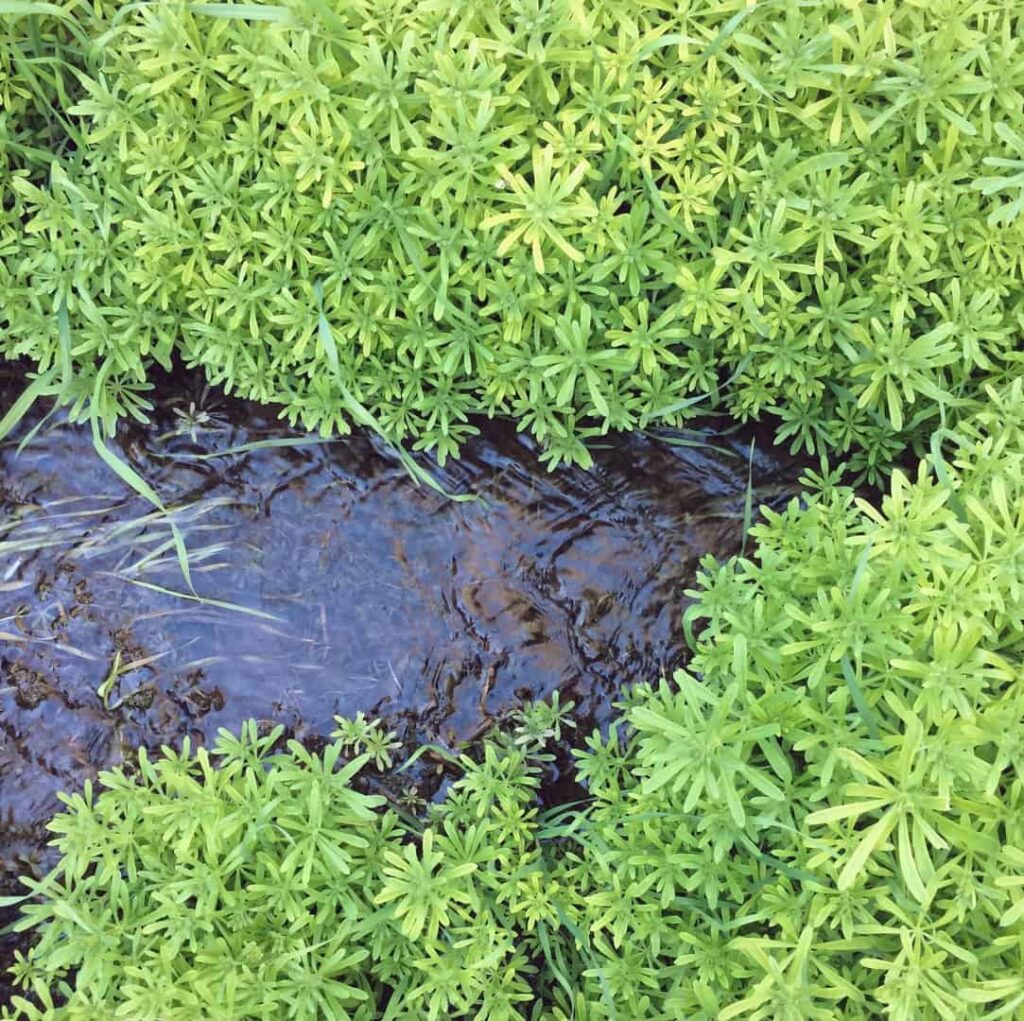
Tips for a Healthy Urinary System
Water is the best medicine and drinking adequate amounts each day when you have kidney stones is of the utmost importance. It is best to take the herbs listed above in liquid form (such as an infusion) so that the medicinal properties of the plants can make it to the urinary tract. This method will also help you stay well hydrated throughout the day.
If you have taken antibiotics in the past or are considering taking them again, it’s critical that you supplement with a high-quality probiotic each day. Your flora is your first line of defense, and when it is eliminated, you become much more prone to infection in the future. By taking a probiotic, you can strengthen your flora and prevent this from happening. If you are prone to urinary tract infections, pay extra attention to personal hygiene, avoid vaginal products that disrupt the pH, and wear loose-fitting clothing and underwear to prevent bacterial growth.
In terms of diet, general recommendations include keeping sugar consumption and animal-sourced protein low. Although high protein diets are touted today, the source of protein matters considerably and can strain the kidneys due to the excess nitrogenous waste products produced from metabolism. Lastly, it’s important to avoid food allergens and coffee, as both make your kidneys work even harder than usual.
Urinary infections affect all genders and people of every age. While the severity and pain will differ from person to person, you can gain tremendous insight into what causes them by using the tissue state model.
Without the tissue state model, you might pick herbs willy-nilly based on their short descriptions. However, it’s easy to imagine that a hot herb will aggravate a hot condition and that a drying herb will make a dried-out urinary tract even more painful. With this system of energetics in place, you don’t need to guess. Instead, you can pick herbs confidently and see better results than ever.


